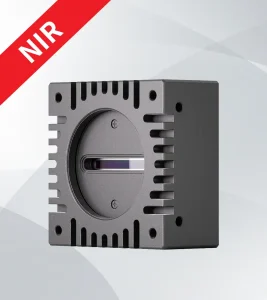GigE industrial cameras are used in so many industries today due to their fast data transfer, ready availability and lower cost. Examples such as this are being actively implemented in the automotive industry, which is one of the top industries using DLP for auto quality control and inspection needs leveraging large-area high-resolution DMDs. Assembly line cameras to inspect car parts and defects/camera + QC system. For example, a 5-megapixel GigE camera has the capability to scrutinize small detail on components such as engine parts at frame rates of up to 30 fps that could lead defects being detected in time before they can pass into another phase off production.
The electronics manufacturing industry is another major user of GigE industrial cameras. As electronic components become ever more complex and smaller, it has never been more important for manufacturing processes to be able to inspect high-resolution images of printed circuit boards (PCBs) or similar delicate electronics. Because GigE cameras can move copious amounts of image data at up to 1,000 megabits per second (Mbps), they excel in the high resolution/definition space required for solder joint or microchip quality checks Manufacturers of electronics often employ multi-camera systems that are connected with Ethernet switches to improve the inspection process and reduce downtime, in addition to gaining greater efficiency.
Falls, USA – GigE industrial cameras are widely used in the pharmaceutical industry to ensure product safety as well as compliance. They are employed in pharmaceutical package inspection — for pill bottles and blister packs, identifying defects including misprints or incorrect labels and a broken seal. A GigE camera with 10 MP sensors is capable of scanning hundreds items per minute in high resolution to ensure not a single defective product ever leaves the production line. This means that it is extremely efficient and minimizes unnecessary financial burden on the pharmaceutical companies by protecting their track-record avoiding costly recalls or non-compliances.
The food and beverage industry also takes advantage of GigE industrial cameras. These cameras are used to sort and grade in fruit, vegetable, dried fruits-pizza toppings-frozen vegetables processing lines as well as on many packaged goods & beverage products. Because GigE cameras can receive power using Ethernet cables, they also work very well for line monitoring with machine vision systems to automatically detect foreign objects, notice when fill levels are low and observe correct sealings in packaging. This makes them an ideal solution for large food-processing plants where cable lengths of up to 100 meters are the norm.

In the aerospace industry, GigE cameras are used for non-destructive testing (NDT), as well as to inspect aircraft components. High-performance cameras that are specifically designed for inspection of composite materials, metal surfaces and engine parts to identify structural defects or surface anomalies. Aerospace manufactures rely on the ability to send one-way high-resolution images over long distances without losing any quality. As a senior engineer at Boeing said, "The precision and reliability of gige industrial cameras have enabled us to detect flaws in real-time with greater accuracy, ensuring the prevention any potential failures in critical aircraft components.".
GigE cameras are used primarily for barcode scanning, label verification and package inspection in the logistics & packaging companies. GigE cameras can be installed in automated conveyor systems to scan thousands of packages an hour and benefit from the accuracy labeling and routing. GigE cameras offer fast frame rates and the high-volume data-carrying capabilities required for tasks that must be completed at speed.
To sum up, if you need precision and real-time performance in your imaging solutions (making them easy to adapt), GigE Vision cameras provide flexibility with high-speed data transmission thus it remains unparalleled over other interfaces. These cameras have completely changed the way industries handle quality control and automation — from automotive to electronics, including pharmaceuticals, food production. Be sure to read more about gige industrial cameras at my website.ActionEvent.